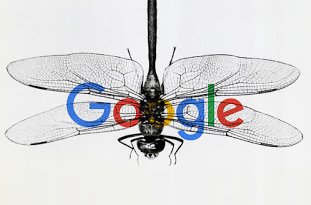Google has reportedly released a statement this week saying that they "effectively ended" plans for a censored search engine in China.
The Intercept, which revealed the existence of Project Dragonfly in August, says Google has been "forced to shut down a data analysis system it was using" to feed the project.
And access to data "integral to Dragonfly... has been suspended for now, which has stopped progress".
According to Google, it had no immediate plans to launch a Chinese search engine.
Citing internal Google documents and inside sources, the Intercept says Project Dragonfly began in the spring of 2017 and pushed forward in December after Google's chief executive, Sundar Pichai, met a Chinese government official,
An Android app with versions called Maotai and Longfei were developed and could be launched within nine months if Chinese government approved, it says.
Using a tool called BeaconTower to check if users' search queries on Beijing-based website 265.com would fall foul of China's censors, Google engineers came up with a list of thousands of banned websites, including the BBC and Wikipedia, which could then be purged from the Dragonfly search engine.
However, members of Google's privacy team confronted the Dragonfly project managers, saying that the system had "been kept secret from them".
And after several deliberations, "Google engineers were told that they were no longer permitted to continue using the 265.com data to help develop Dragonfly, which has since had severe consequences for the project".
Issues with launching a search engine in China?
The so-called great firewall of China is infamous for not allowing its citizens free access to all the content available on the internet.
In the past two years, China imposed increasingly strict rules on foreign companies, including new censorship restrictions.
Some Western sites are blocked outright, including Facebook, Twitter and Instagram.
Certain topics such as the Tiananmen Square protests in 1989 are also completely blocked.
References to political opposition, dissidents and anti-Communist activity are also banned as are those to free speech and sex.
Any search engine in China would have to comply with the Chinese government's strict rules on censorship.








